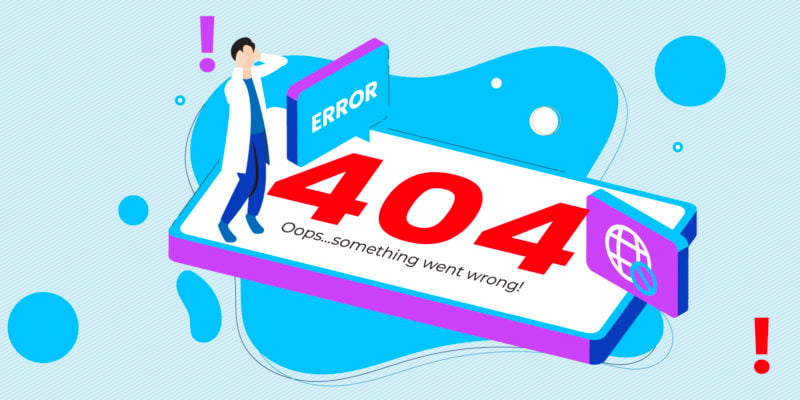
Developing a flawless custom mobile app is always a mounting challenge for many companies. On the other hand, a closer look at the mobile app usage stats shows that the majority of the apps (80%) are discarded after first usage.
Have you ever thought why most of the consumers use Amazon apps for online shopping and DoorDash or UberEats for food delivery in the USA? What makes them stand out from hundreds of applications that offer similar services?
The answers include the functionality of the application, features, and the superlative experience they offer across all devices. Therefore, having a custom mobile application that can meet your ideal customer needs can build your brand and earn trust.
Quick takeaways:
- You can understand what are customer-centric and business-centric features
- Top mistakes to avoid while developing a mobile app
- How much does it cost to develop a mobile app?
- What is the MoSCow strategy?
- 6 reasons why users uninstall a mobile app
Throughout our years of experience, we’ve seen many businesses opting for custom mobile application development to stay ahead in the sheer competitiveness of the digital presence.
Unfortunately, they’ve been told to follow the process of their competitors and incorporate all the features that they have. But in reality, it won’t yield any results — further complicates the development process and loses the hold on the market.
If you ask us why?
The answer is simple. Every business has unique value propositions, unique audiences, and unique challenges they solve. Therefore, following someone else and having a mobile application could be a cloning process instead of owning a custom mobile app.
Rise of smartphones and mobile apps:
The global mobile app market is expected to grow by USD 497.09 billion during 2020-2024.
–Business wire
With the rise of smartphones globally, mobile apps have gained prominence in serving a specific purpose of consumers. It helps in reaching a wide range of audience and tapping new business opportunities.
But, is it as easy to build a mobile app as we think? Certainly not. Developing a custom mobile application takes time, focus, and flexibility as there are numerous emerging trends to pay attention to as well as adopt.
A custom mobile application benefits businesses in scaling up their digital presence and making them future-ready.
According to a recent report, both the Play Store and App Stores contain a total of over 8.13 million apps. That’s a huge number to imagine. But, about 80% of those apps are abandoned after their first use.
Why? What is the success formula to make a mobile app popular and drive revenue?
Well, the truth lies in discovering the mistakes that cause a mobile application to be a failure, whether in the concept phase, designing phase, development process, testing, or marketing the application.
Let’s dig deep into common mobile app development mistakes that can hinder your growth.
What to consider before developing a custom mobile application:
- How can I create a unique value for my users?
- How will my app transform my customer’s experience?
- What is attractive to them?
Regardless of the complexity and usage, we can divide mobile app features into two customer-centric and business-centric features.
1. Customer-centric features of a mobile app:
Developers will build these features with the sense of enticing a customer and making him spend more time on the app. These features include
- Appealing designs
- Well-thought-out UI and UX
- Covers key expectations based on user behavior
- Stable and reliable workflow
- Provides data protection
- Quick access to the service desk or help
2. Business-centric features of a mobile app:
Business-centric features focus on retaining a customer and offering a seamless shopping experience with utmost security. These features include
- User retention
- Quick and hassle-free payments
- Securing data from breaches
- Better adaptability
- Low cost of future development and maintenance
9 common mistakes made in custom mobile application development:
Developing a custom mobile application involves need and vision. Not having them, would end up occupying some space in the play store. But not achieving the business objectives. To name a few, here are the top 9 common mistakes of custom mobile app development that many businesses do.
Have a look
- Not identifying the need
- Lack of research
- Insufficient budgets
- Unrealistic expectations
- Too many features and functionalities
- Not developing cross-platform applications
- Poor UI and UX
- Not doing proper app testing
- Unplanned marketing strategy
1. Not identifying the need:
Would you offer ham to vegans? It won’t work, right! Similarly, when you don’t have customers to use your mobile applications, there is no point in investing money and developing a world-class application. Moreover, it turns out to be a terrible attempt by wasting time and resources.
Most of the companies have an awesome idea for their business. But they don’t do enough research and fail to identify customers to target. As said earlier, custom mobile application development is time-intensive, cost, and resource-intensive.
Identifying what features do the users need is crucial before app development. You need to clearly define your business objectives, have a clear roadmap, and check whether the app can delight your users or not.
2. Lack of research:
Searching for the “benefits of having a custom mobile application for your business” and proceeding to develop an app will turn into a terrible mistake.
Remember, every business has a different objective, target audiences, and unique selling proposition (USP) to win over competitors. So, if you fail to do thorough research before starting app development, you will end up wasting time, money, and resources.
A well-researched market study helps you in understanding user needs and their online behavior. Henceforth you can customize the app to delight your target audience.

3. Insufficient budgets:
This is one of the most common mobile app development mistakes people/ companies make.
Mobile application development means you have to hire a team of app developers, UI & UX designers, testing experts, project managers, and marketing experts. In addition to the tech team, mobile app development can take a week or a month, or even a few months, based on its features and complexity.
On the other hand, as mobile technology is changing day by day with the advent of Artificial Intelligence (AI) and Virtual Reality (VR), app development has become more critical and time-consuming — imposing unexpected budgets.
Of course, there are some cheaper options available in the market, but they don’t guarantee the best results. However, relying on those methods would burn your pocket more than you expected.
Why will cheap app development actually cost you more?
If you opt for cheap mobile app development services, they simply clone applications rather than building a customized app. By offering junior developers and resources with inadequate experience, they develop your app — as a result, such teams won’t be able to deliver quality products within the time and budget.
As they work on multiple projects concurrently, developers and project managers won’t be able to dedicate time on your project. Further, leads to missing deadlines and poor quality.
How much does it cost to develop a mobile app? Check out our recent blog on how to optimize custom mobile application development cost.
4. Unrealistic expectations:
It’s important to have a clear understanding of your business objectives and what you are expecting from a mobile app.
Though your business offers services similar to Amazon or any other big player, you can not expect the same ROI with your limited budget and capabilities. You must have a plan and process flow in place to avoid unnecessary and unforeseen downtimes.
If you are unclear and keep on changing features, you end up developing a mobile app that fails to meet your objectives. Furthermore, it will have a ripple effect on budget, development, delivery, and employee morale.
5. Too many features and functionalities:
It’s great to have a custom app for your business. But it doesn’t mean you need to have all the features like other apps.
Remember, your business is unique and has a different purpose to meet. But, in reality, many startups and SMEs try to chase or replicate their competitor’s features even without much need for them.
Don’t forget that every new feature will add up to the cost and further delays app development. Therefore, developing a custom mobile application with limited features that serves the primary purpose is advisable to avoid unnecessary burnouts. You can then slowly introduce new features and customize existing features based on customer’s feedback.

6. Not developing cross-platform applications:
Not having an efficient cross-platform app development strategy is one of the common mobile app development mistakes. Gone are the days where companies used to develop apps exclusively for a single platform.
Today, with the evolution of cross-platform mobile app development frameworks like PhoneGap, you can build an app simultaneously for both Android and iOS platforms with a single source code.
With cross-platform applications, you can understand the real potential of each platform and can optimize further to delight customers.
7. Poor UI and UX:
Do you know smartphone users are impatient and make quick decisions to uninstall a mobile app that offers a poor experience? Here are some UI/ UX stats that impact mobile app usage.
- Mobile users are 5X more likely to abandon a task if the site isn’t optimized for mobile.
- Almost 60% of users say they will not recommend a business that has a badly designed mobile site.
- 90% of smartphone users take action, such as making a purchase or contacting a business.
It shows how crucial it is to provide value through your application and offer a superlative experience.
Poor User Interface (UI) and User Experience (UX) are the major reasons why most of the customers uninstall your app quickly.
6 reasons why users uninstall a mobile app?
To make you understand further, we have listed down the top reasons why users uninstall an application.
- Too many bugs, confusing UI, too many features, and unmet expectations
- Taking more time to load and understand its functionality
- Not enough products in the library and missing primary features
- Consuming more space
- Privacy concerns
- Annoyed due to unnecessary notifications, irrelevant ads, and emails
8. Not doing proper testing:
This is another mistake that many companies make when developing a mobile app.
Remember, you don’t get a second chance to win the first impression. What does it mean? Well, a mobile app with too many bugs and latency issues will annoy the end-user and leave a negative impression that can hurt your branding, especially in the initial days of the app release.
Neglecting your mobile testing would result in losing customer trust and business opportunities. Make sure you conduct testing for every phase and over a range of devices to ensure your app is responsive and delivers the best experience.
Check out our blog to understand more about leading software application testing trends in 2022.
9. Unplanned app marketing strategy:
One of the most common mistakes in mobile app development is its unplanned marketing strategy.
Ideation, design, development, testing, and deployment are one side of the coin. On the other side, marketing your app and making customers download your app is a whole different game.
In this fast-paced market, one has to stay on top of the learning curve and adopt new changes to retain and churn customers. However, lack of adoption and poor customer retention will make any app miserably fail.
Reason to fail : Why do you need a mobile app marketing strategy?
It all starts with failing to narrow down your ideal customers and trying to reach everyone and nurture them. As said earlier, you should have a plan and USP in place to win the heavy competition.
Lack of an MVP (Minimum Viable Product) is another mistake in custom mobile application development. An MVP is the stage where your app consists of only the necessary features thereby, allowing you to launch the app in the market, validate its performance, taking feedback from customers, and customizing it further.
MVP helps in
- Understanding the application’s performance in advance
- Saving cost and time to develop an app
- Customizing the app and improving customer retention
Internal resource assessment is the first thing you have to do before developing a custom mobile application. If you lack resources and are struggling to find the best talent and hire them, collaborating with an app development outsourcing partner would be a viable solution to build your app within your budget, time, and with the best features.
An experienced and industry-specific mobile app development company can help you with end-to-end app development services, including design, development, deployment, testing, and maintenance with utmost security.
Amzur has been one of the leading IT staffing partners and custom mobile application development companies for the past 15 years in Tampa, Florida. With our rich expertise in custom software & app development, we help you build a world-class mobile app that is tailored specifically to your business needs.
Our mobile app developers conduct a thorough investigation and come up with a viable technology solution that can ensure a competitive edge and reduce your time-to-market efforts. So, you can focus on marketing strategy and revenue generation.
Apart from mobile app development services, we expertise in offering dedicated extended development teams that work exclusively for your project.
Want to build a responsive and flawless mobile app for your business needs?

Author: Venkat Bonam
Director – Global Delivery
Driving innovation and leading high-performance teams to create impactful digital solutions that drive business growth and exceed customer expectations.



